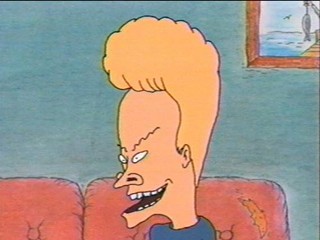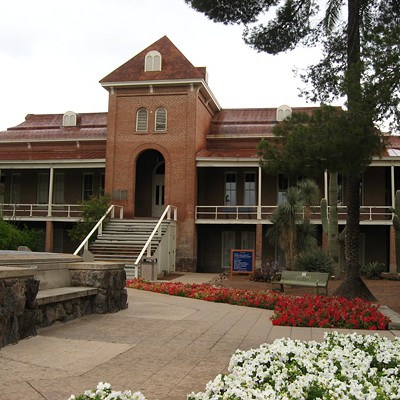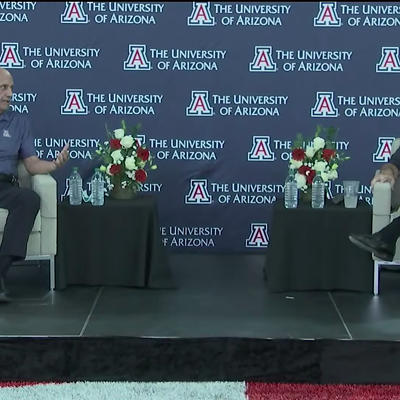The results of the investigation--by Bill Morgan, the associate athletic director for compliance, and Doug Woodard, the faculty athletics representative--were announced Monday, April 24. The results will now be forwarded to the Pacific-10 Conference.
After the investigation results were announced, Nava--who, along with Rodgers, was not named in the redacted copy of the investigation results provided to the media--said he was relieved while wondering how a "departmental squabble became front-page news." Meanwhile, his colleagues in the Department of Classics insisted that Nava and Rodgers had, in fact, done wrong--and one colleague even pointed out what he considered inaccuracies in the investigation's report.
Meanwhile, the hubbub has spawned a second investigation--into independent studies programs in the Department of Classics and the Religious Studies Program--that is already underway (see "Scholastic Scrutiny," Currents, April 20), as well as a third investigation, to be conducted by Morgan and Woodard, into possible academic preferential treatment for UA student athletes.
The genesis of the controversy and the investigations stem from a March 28 memo signed by eight tenure-stream faculty members in the Department of Classics. The memo informed Dr. Charles Tatum, the dean of the College of Humanities, about a no-confidence vote regarding Nava, who was the interim Classics Department head. (The Religious Studies Program is currently part of the Department of Classics, even though they are two different disciplines.) The memo alleged that Nava had improperly enrolled a "student-athlete" in six units of classics independent study this semester. The memo also claimed that Nava encouraged that same student-athlete, who is identified later in the memo as a basketball player, to enroll in a three-credit graduate classics course for which the student hadn't met the prerequisites, and that Nava "implored" that course's instructor not to drop the student during the basketball season.
Rodgers--who graduated with a bachelor's degree in psychology in December 2005--was not identified by name in the memo, although he was identified by the fact that he was the only basketball player who had graduated and was taking graduate courses.
In a meeting with members of the print media, UA Provost George Davis--who is acting as the university's head while UA President Peter Likins recuperates from heart surgery--said he was satisfied with the results of the investigation. He said he felt the investigation proved no NCAA violations had taken place, and showed that Nava had not given Rodgers any preferential treatment (although he never used Nava's and Rodgers' names).
"I don't see any evidence for favoritism in this specific example," Davis said.
However, Davis did express concern that Nava is currently supervising 27 students in independent study, including 12 athletes.
"The fact is, 27 independent studies is an anomalistically high number," Davis said. "That's part of the reason why I asked (UA Vice Provost for Instruction) Jerry Hogle to look into academic independent study. ... What strikes me as unusual is just the raw number of independent studies."
Davis said that the just-completed investigation did not delve into Nava's other independent-study agreements, saying the inquiry focused only on the one student who Classics Department members complained about in the no-confidence memo.
Davis also said that while he didn't feel there was any favoritism shown in the Nava/Rodgers case, "there was picked up a sense above and beyond these three allegations (that were made in the no-confidence memo), there may be faculty members who have, with respect to some athletes, given special advantage."
When asked about the unnamed professor in question--Nava--Davis said he was "a quality teacher and a scholar."
Nava said he was happy to hear about Davis' praise. He noted that the investigation made him feel like he was expected to apologize for the fact that African-American and Latino students--including many athletes--were drawn to him individually and personally.
"This has obviously been a profoundly troubling experience," Nava said. "But I won't let it affect my commitment to underrepresented students on campus."
Nava applauded the fact that Hogle was looking into independent-study programs, and explained his disproportionately high number of independent-study students as being a result of his desire to help minority students.
"I have a hard time saying no," he said. "It's been a heavy burden on me."
David Christenson, an associate professor of classics and the department's director of graduate studies--as well as one of Nava's leading critics--said the results of the investigation didn't surprise him, although he insisted that what Nava did was wrong.
While the redacted report said Nava was qualified and permitted to advise Rodgers, Christenson insisted that was not the case, even though Nava was the acting department head.
"The fact remains that he does not have credentials in classics, and he didn't have permission to teach any (classics) courses," Christenson said. "We have an agreement (between classics and religious studies) to respect each other's autonomy in curriculum issues. He did not respect that agreement."
Christenson said that several of the report's conclusions were flat-out wrong. Regarding Classics 554, the three-credit course in Greek and Roman sculpture that Rodgers signed up for (but has reportedly never attended), the report noted: "... Dr. Jeffrey Spier, the Classics 554 course professor, stated that students in that class come from diverse academic backgrounds, and he does not require any prerequisites. Importantly, the university catalog does not list any prerequisites for Classics 554. In fact, the computerized enrollment Web registration system would not have permitted (redacted) to enroll in the course if there were any prerequisites."
Christenson notes that while no prerequisites are listed in the catalog for Classics 554, there are classes listed as prerequisites for Classics 454--which is the same class. And as for the assertion that the computer would not have allowed Rodgers to enroll if there were any prerequisites, he said: "The university computer system doesn't catch prerequisite issues for any class. That's just not true for any class at the UA."
In another alleged inaccuracy, the investigation report said "the independent- study form used by the department does not require the signature of the director of (redacted) studies." However, Christenson provided the Weekly with a copy of the form, which does include a line for the signature of the "department advisor"--in other words, said Christenson, the director of graduate studies.
While the university has shut the door on the Nava-Rodgers case, that doesn't mean the matter is over. The Pacific-10 Conference and the NCAA could choose to investigate, and Davis didn't completely rule out the possibility that the other two inquiries stemming from the Nava-Rodgers matter could lead to NCAA trouble.
"If the NCAA decides it's not satisfied with the response, then you will hear about it," Davis said.
And make no mistake--many people still have questions about the fact that Nava, a religious studies professor, agreed to advise a psychology grad to take six independent- study credits in a discipline that was not religious studies. The questions are amplified by the fact that Nava is administering so many independent-study students--and the fact that Nava admits he's close to UA athletics, especially the basketball team.
When asked about an Arizona Daily Wildcat report that Nava regularly hung around the team, he responded: "I do exercise at the Rec Center. And I am friends with (assistant coach) Josh Pastner. He is one of my good friends, and I don't apologize about that."
And in what could provide an interesting twist, Nava hinted that Rodgers could end up completing the six units of independent-study after all. After news of the initial investigation broke, Nava told the Weekly that he hadn't heard from Rodgers in months. However, that situation has apparently changed, although Nava declined to name Rodgers by name.
"I have actually talked to every single one of my independent-study students," he said. "I am still working with them, but I am confident that all the independent-study students have shown a desire to fulfill their requirements."
Rodgers has not returned repeated e-mail messages from the Weekly.













